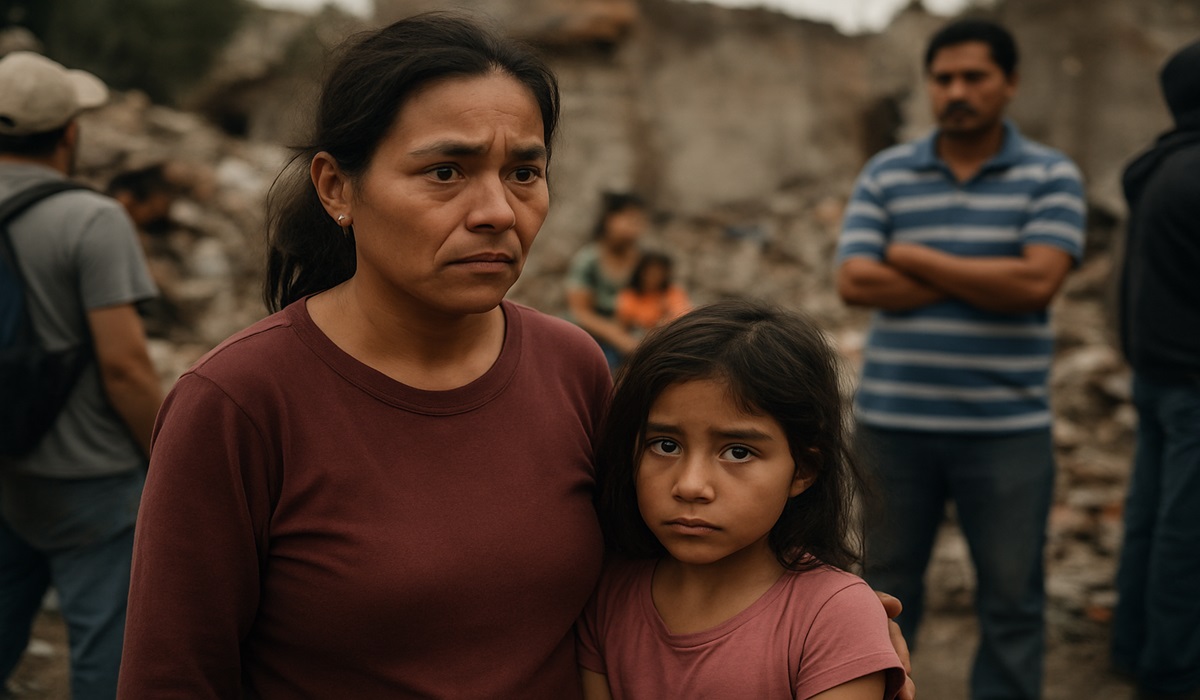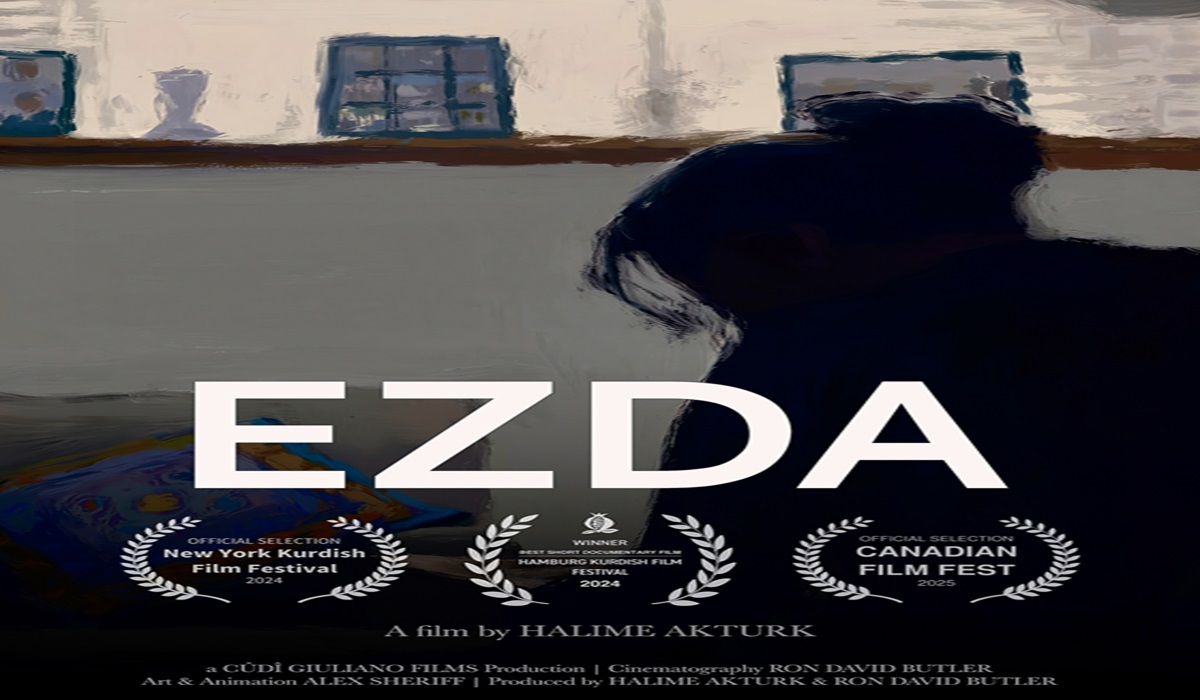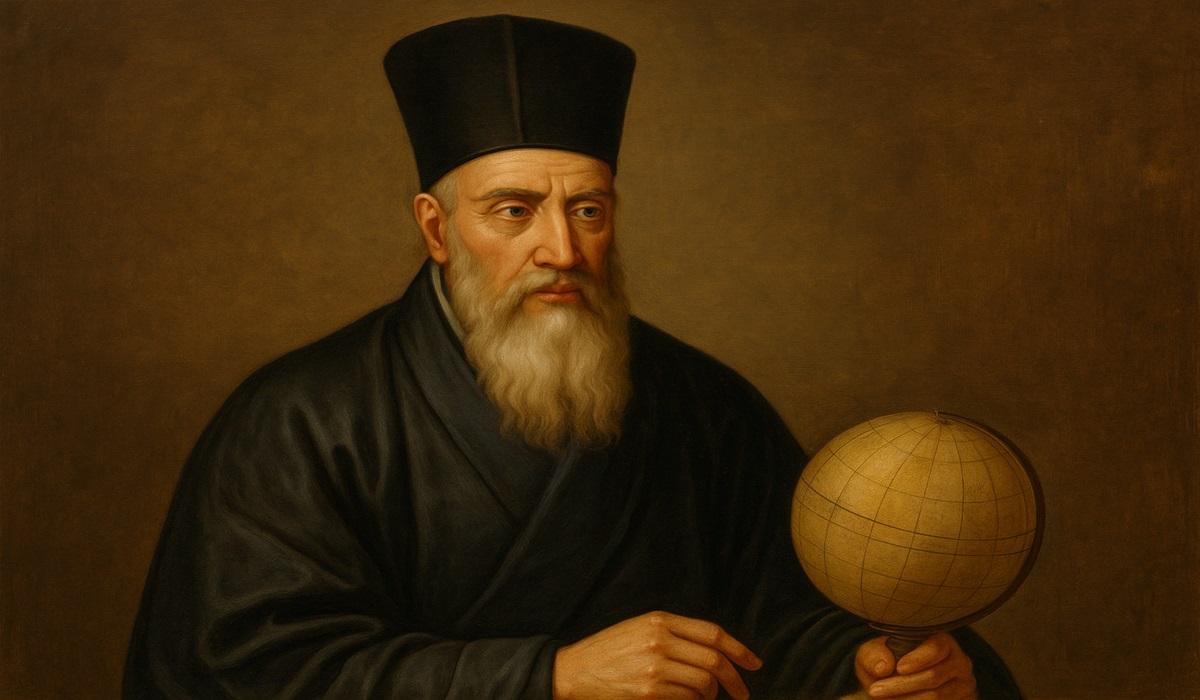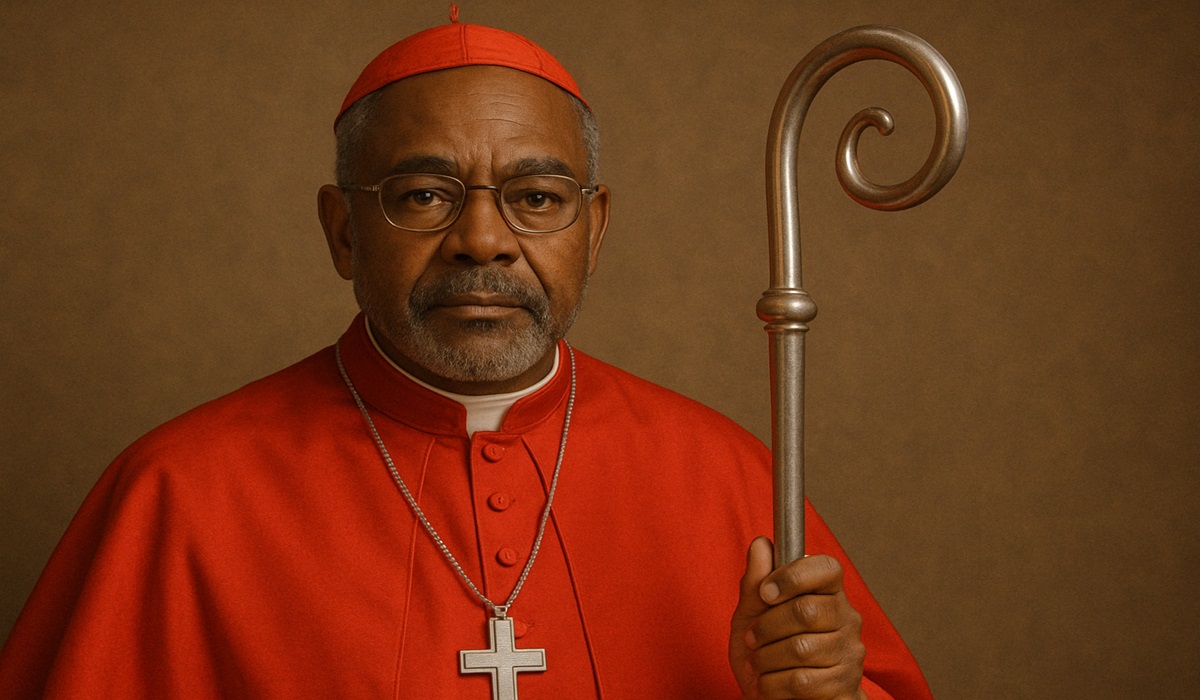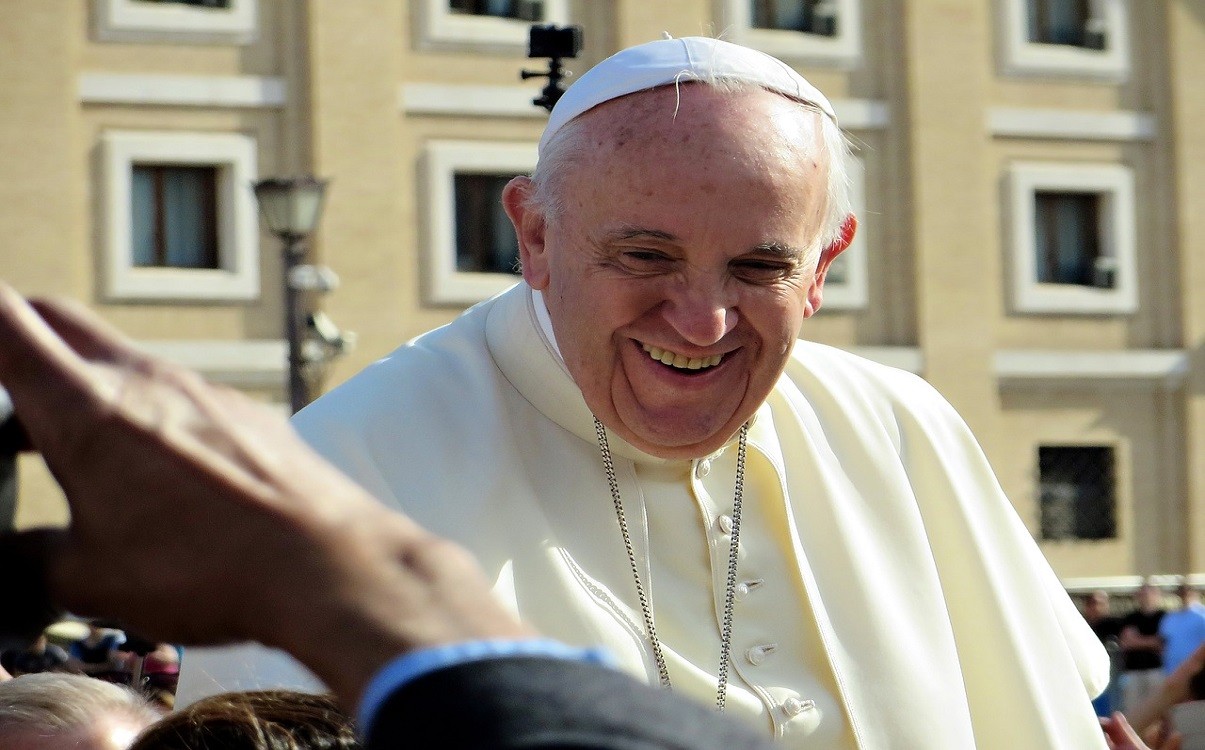Pope Francis Makes Another Historic Apology While In Quebec
- Maryam Ahmed
- Canada
- D.O.C Supplements - Trending News
- South Asia
- July 29, 2022
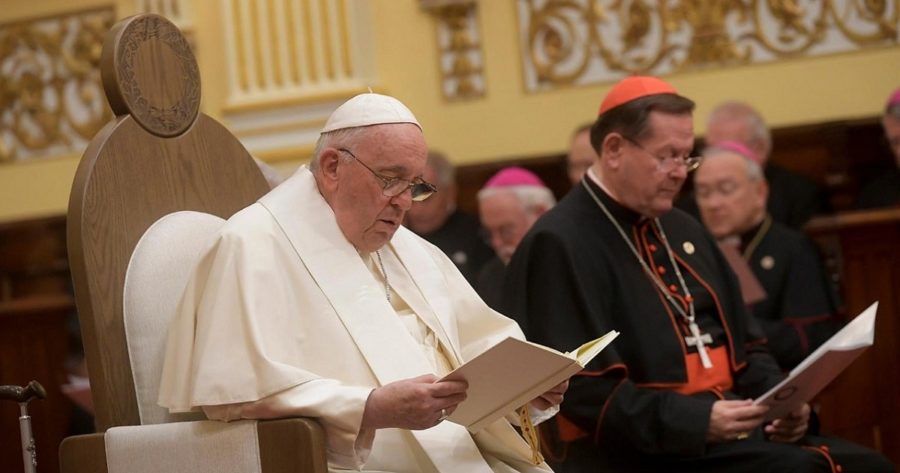
Some protestors in Quebec were calling for the Pope to Rescind the ‘Doctrine of Discovery’
Pope Francis arrived in Quebec on Wednesday for the second leg of his “penitential pilgrimage,” where he drew criticism — again — for what critics say has been his insufficient apology for the Church’s role in Canada’s residential school system for Indigenous children.
For the bulk of the 19th and 20th centuries, Indigenous children were forcibly removed from their families and placed in boarding schools, often hundreds of miles from their communities. They were forbidden from speaking their native languages and practicing their cultural traditions and, in many cases, were physically and sexually abused.
On Monday the Pope apologized for the “evil committed by so many Christians” in the system, but not for the complicity of the Church as an institution.
Over and above reiterating that he was sorry for the participation of “local Catholic institutions” in the residential school system and the “wrong done by so many Christians,” Pope Francis said the Vatican and local church communities were committed to promoting Indigenous culture and “spiritual accompaniment.”
“It is our desire to renew the relationship between the church and the Indigenous peoples of Canada, a relationship marked both by a love that has borne outstanding fruit and, tragically, deep wounds that we are committed to understanding and healing,” he said in a speech at the Citadelle, the Governor General’s official Quebec City residence.
Francis committed to responding in a “fitting way” to the calls to action from the Truth and Reconciliation Commission.
The 85-year-old pontiff celebrated a Mass on Thursday at the Basilica of Sainte-Anne-de-Beaupré, a popular pilgrimage site outside Quebec City. Before it began, two people approached the pulpit in silent protest and unfurled a banner that read “Rescind the doctrine.”
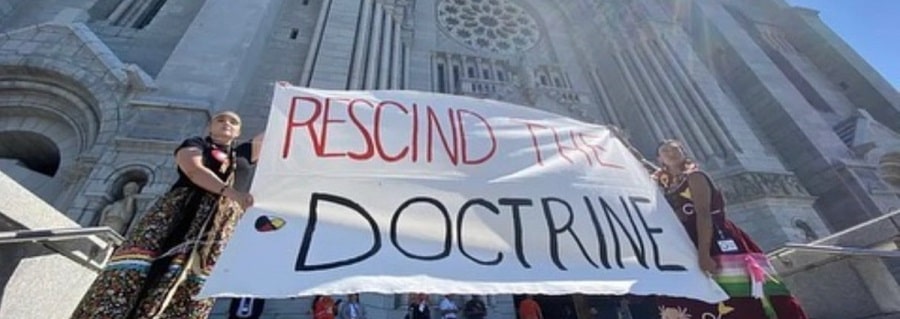
The banner references the Doctrine of Discovery, which refers to a centuries-old papal edict that justified the colonization, conversion, and enslavement of non-Christians and the seizure of their lands — and, Indigenous scholars say, laid the foundation for the Indian Act in Canada.
Many members of the country’s Indigenous communities hoped the Pope would rescind the doctrine during his weeklong trip to Canada.
Sarain Fox, an artist and activist who participated in the protest, said, “the message was necessary following the Pope’s apologies this week,” which was underwhelming according to her.
“It’s important for us to be recognized as human beings so it’s not enough just to apologize. You need to talk about the root of everything,” said Fox, who is from the Batchewana First Nation near Sault Ste. Marie, Ont., and whose aunt is a residential school survivor.
“Indigenous people are looking for action and our elders have very little time left to see that action.”
Once the ceremony got underway, the banner was then put on display outside the basilica.
Pope Francis went further in his residential school apology on Tuesday, but Canadian political leaders made it clear as he touched down in Quebec City that he and the Catholic Church had much further to go to reconcile with Indigenous Peoples.
The Quebec that Francis encountered has changed dramatically since Pope John Paul II visited in 1984. Quebec has had a long, complex relationship with the faith.
For centuries, the Church had a stranglehold over public institutions in Quebec, including health care, education, and social services, before the province began to uncouple itself in favour of a more secular approach — the so-called Quiet Revolution of the 1960s. The shift away from Catholicism has accelerated in recent decades.
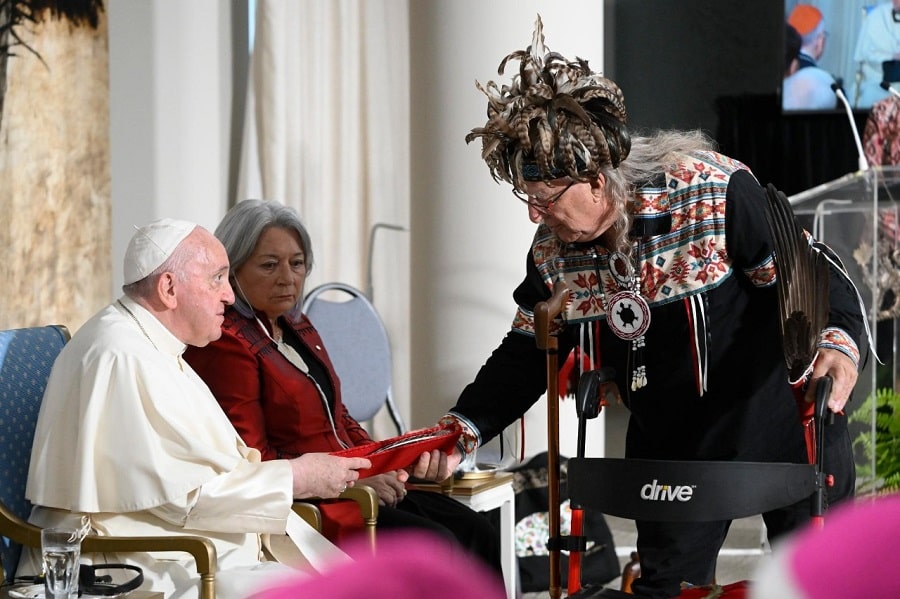
In his speech Wednesday in Quebec City, the Pope said he wanted to express “deep shame and sorrow” for the residential school system in Canada, in which “local Catholic institutions had a part.”
While he stopped short of denouncing the Catholic Church as a whole and its role in creating that system, Francis brought up the United Nations Declaration on the Rights of Indigenous Peoples, saying it would inspire a commitment from Catholic communities to promote Indigenous cultures and recognize the role of “local Catholic institutions.”
“Today too, there are any number of forms of ideological colonization that clash with the reality of life, stifle the natural attachment of peoples to their values, and attempt to uproot their traditions, history and religious ties,” Francis said.
Pope Francis used the Canadian flag’s Maple Leaf as a symbol of multiculturalism and quoted the exhortation he wrote in 2020, Beloved Amazon, recognizing that “colonization has not ended.”
Image source, the Vatican Twitter feed

